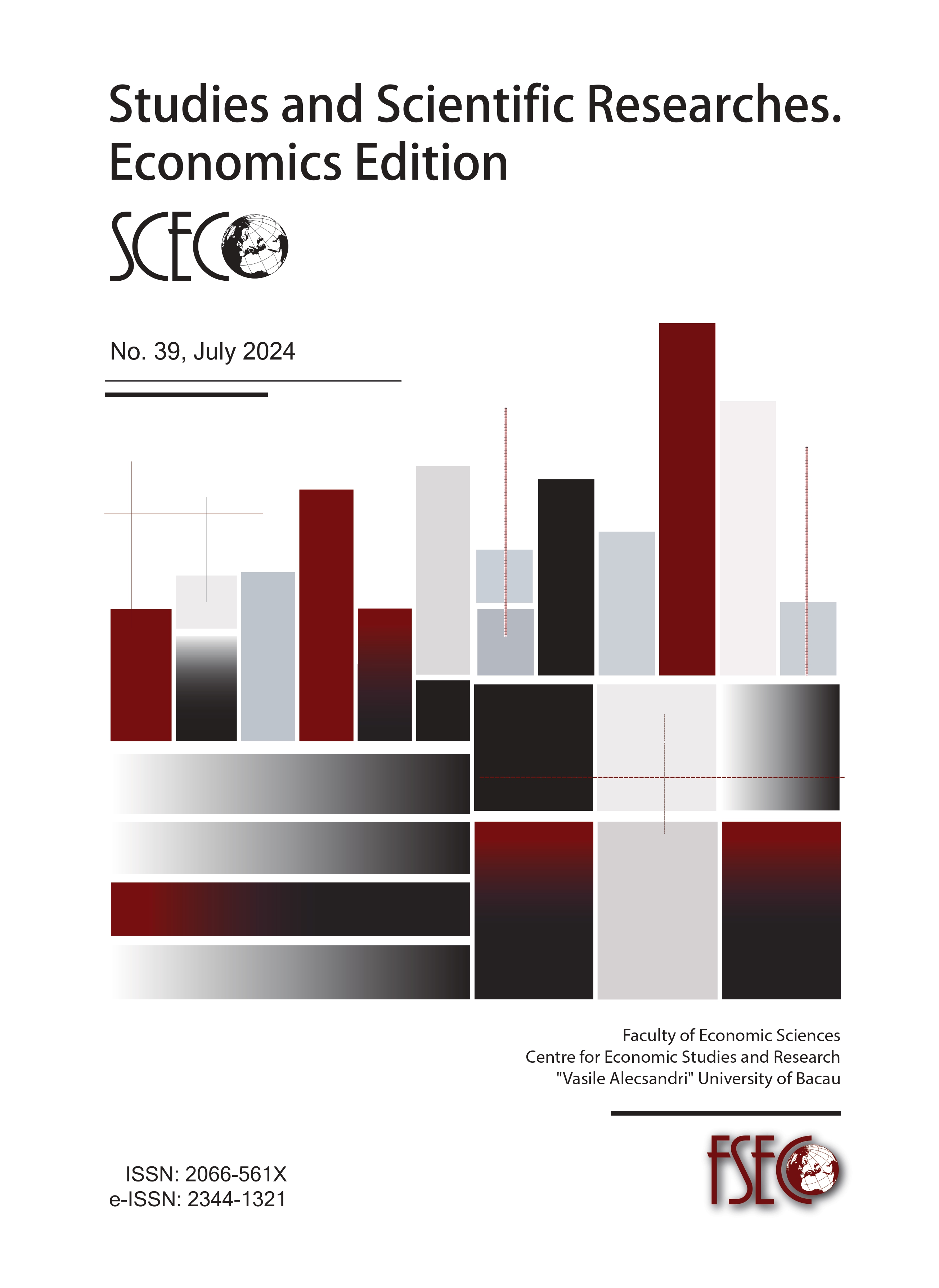Fiscal - Economic Perspectives in Promoting Sustainable Development of National Economies
DOI:
https://doi.org/10.29358/sceco.v0i39.562Abstract
In recent years, sustainable development has become a topic of major interest, aiming not only at economic growth, but also at enhancing social welfare and protecting the environment. The aim of this research is to analyse the role of taxation in promoting sustainable development and to assess how taxes affect the economy, the environment and society. The study is based on data collected from 163 national economies and uses statistical methods to examine the impact of the tax burden on sustainable development in national economies. The results show that tax dynamics significantly influence economic growth, the sustainability of national economies and social welfare. Furthermore, the article highlights the importance of tax policy in achieving sustainable development goals and suggests adopting a balanced approach to taxation that takes into account economic, social and environmental aspects. This research contributes to expanding knowledge in the field of sustainable development of national economies, providing a new perspective on the relationship between sustainable development and the tax burden.
Downloads
References
Brundtland Commission. (1987). Our common future. Oxford University Press.
Walker, B., Holling, C. S., Carpenter, S. R., & Kinzig, A. (2004). Resilience, adaptability and transformability in social-ecological systems. Ecology and Society, 9(2), 5. https://doi.org/10.5751/es-00650-090205
Sterman, J. D. (2012). A behavioral model of the dynamics of human systems for sustainability science. Sustainability Science, 7(Suppl 1), 5-21. https://doi.org/10.1007/s11625-011-0149-y
Dresner, S. (2008). The principles of sustainability. Earthscan.
Rogers, P., Jalal, K. F., & Boyd, J. A. (2010). An introduction to sustainable development. Earthscan.
Osei-Assibey, E., Hashim, H., Danquah, M. A., & Amoako-Tuffour, J. (2016). The impact of tax incentives on renewable energy uptake in Ghana. Renewable and Sustainable Energy Reviews, 55, 204-213.
Xu, X., Ma, T., & Ding, X. (2018). Fiscal policies for sustainable development in China: tax reform and carbon tax. Journal of Cleaner Production, 171, 1504-1514.
Rübbelke, D. T., & Schöb, R. (2018). How do taxes affect transition to a low-carbon economy? A real options analysis of carbon taxes and green technology support. Journal of Environmental Economics and Management, 88, 1-20.
Doda, B., & Gennaioli, C. (2019). Taxation and energy: does fiscal policy induce innovation? Journal of Environmental Economics and Management, 93, 125-151.
Baer, P., & Winkler, H. (2019). Taxation, innovation and the environment. Energy Economics, 80, 721-731.
Delorme, L., & Nkoumou, M. (2020). Carbon taxation and sustainable development: evidence from sub-Saharan African economies. Environmental Science and Pollution Research, 27, 23410-23420.
Kurniawati, R., Widyarti, A., & Saad, M. B. (2020). The impact of environmental regulation, green tax, and financial performance on sustainable development. Journal of Cleaner Production, 270, 122359.
Dhakal, S., & Kharel, G. (2021). Energy taxation and sustainable development: Evidence from South Asian economies. Energy Policy, 150, 112122.
Paliu-Popa, L., Gherghina, Ş. C., & Dinu, V. (2017). Sustainable development, fiscal policies and poverty reduction: A panel data analysis. Sustainability, 9(5), 757.
Gagalyuk, T., & Klochko, O. (2018). Fiscal poverty dynamics and environmental sustainability: A comparative analysis of European countries. Journal of Cleaner Production, 172, 2955-2963.
Andreea, S. A., Graţiela, G., Florina, B., & Codruţa, S. (2019). The Impact of Fiscal Policies on Sustainable Development and Poverty Reduction in Romania. Sustainability, 11(13), 3558.
Hossain, M. A., & Bose, M. L. (2020). Fiscal policy and sustainable development in Bangladesh: An empirical analysis. Journal of Cleaner Production, 261, 121246.
Downloads
Published
Issue
Section
License
Copyright (c) 2024 Anatol Melega, Veronica Grosu, Mihaela Tulvinschi

This work is licensed under a Creative Commons Attribution 4.0 International License.
Authors who publish with Studies and Scientific Researches. Economics Edition (SCECO) agree to the following terms:
-
Copyright Retention
Authors retain full copyright over their work and grant the journal the right of first publication. The published article is simultaneously licensed under the Creative Commons Attribution 4.0 International License (CC BY 4.0). This license permits others to:-
Share — copy and redistribute the material in any medium or format
-
Adapt — remix, transform, and build upon the material
for any purpose, even commercially, as long as proper attribution is given to the original author(s) and source.
-
-
Additional Distribution
Authors may enter into separate, non-exclusive contractual arrangements for the distribution of the journal’s published version of the work (e.g., post it to an institutional repository, include it in a book), with clear credit to the initial publication in SCECO. -
Preprint and Open Posting Policy
Authors are encouraged to post their work online (e.g., in preprint archives, institutional repositories, or personal websites) before submission, during review, and after publication.
This practice supports academic exchange and can lead to earlier and broader dissemination and citation of published work.
(See: “The Effect of Open Access” – PLOS)
For further inquiries regarding copyright, licensing, or archiving, please contact the editorial office at Editorial Board








